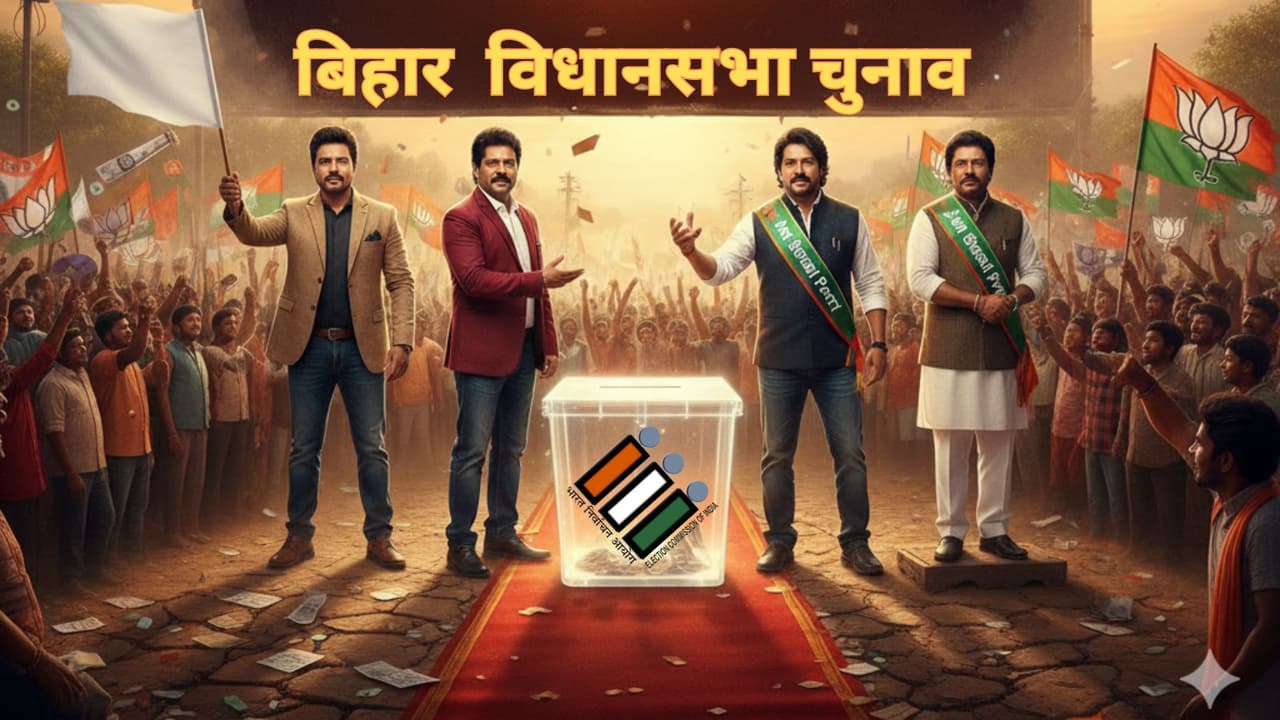62% of the candidates in Bihar Election 2025 are graduates or higher educated, including D-Litt, PhD, engineers and doctors. At the same time, 8% non-matric candidates are also in the fray with a strong support base. This shows the balance of education and mass base in politics.
Patna: This time in the first phase of Bihar Assembly elections 2025, the educational qualification of the candidates is as much in discussion as their political hold. The data of affidavits given to the Election Commission shows that this time about 62% of the total candidates are graduates or above degree holders, which clearly shows the importance of education in the politics of Bihar.
Both the NDA and the Grand Alliance have this time expressed confidence in highly educated faces, which include degrees like engineering, MBBS, MBA, PhD and D-Litt. This time, a total of three candidates are D-Lit degree holders, including Deputy Chief Minister Samrat Chaudhary (Tarapur, BJP), Murari Mohan Jha (Kevati, BJP) and Ramanuj Kumar (Sonpur, RJD).
Whereas, the number of candidates holding PhD degree is 12. Prominent among them are Dr. Sanjeev Chaurasia (BJP), Dr. Ramanand Yadav (RJD), Dr. Indradeep Chandravanshi (Congress), Shatanand (Sahebpur Kamal, RJD) and Chandan Kumar (Khagaria, Congress). These leaders not only have political skills but also have understanding of administrative and government policies.
Dominance of engineering, LLB and professional degrees
This time there are 12 candidates holding engineering degrees in the election fray. Prominent names among them are Vijay Kumar Sinha (Lakhisarai, BJP), Ruhail Ranjan (Islampur, JDU), Ajit Kumar (Kanti, JDU), Sanjeev Singh (Vaishali, Congress) and Ravindra Kumar Singh (Mehanar, RJD). These leaders, who have engineering backgrounds, claim that their logic and problem-solving skills will help them in taking policy decisions.
Apart from this, 17 candidates are LLB, 5 MBBS and 3 MBA degree holders. These include names like BJP’s Dr. Sunil Kumar (Bihar Sharif), RJD’s Dr. Karishma (Parsa) and JDU’s Komal Singh (Gaighat). These leaders have experience in the fields of law, health and management and are claiming to use their professional knowledge in politics.
Mass support vs education: 8% non-matriculation is also strong
While the dominance of educated candidates has increased, about 8% of the candidates are non-matric. These include candidates educated up to class VII or VIII and some who are only literate. Although his education is limited, his mass base and regional hold make him effective in the contest.
Political analysts say that a balance between education and mass base is necessary in the politics of Bihar. Through education, leaders can understand policy and administration, but to win votes, public communication and local identity are equally important.
From graduate to post graduate
- Post Graduate – 28 candidates
- Graduation – 66 candidates
- Intermediate – 47 candidates
- Matriculation – 24 candidates
- Non-Matric – About 8% candidates
These figures show that the level of education in the politics of Bihar has increased more than before. Parties no longer rely only on caste and regional equations, but also seek to add policy and administrative capacity by giving tickets to candidates with higher education.
